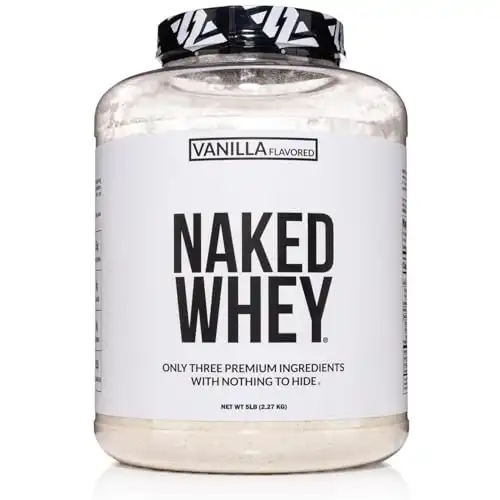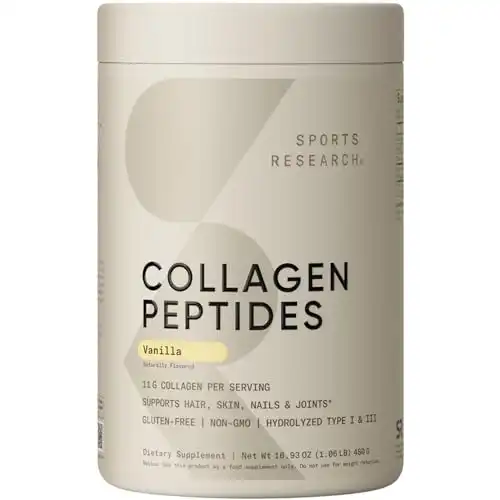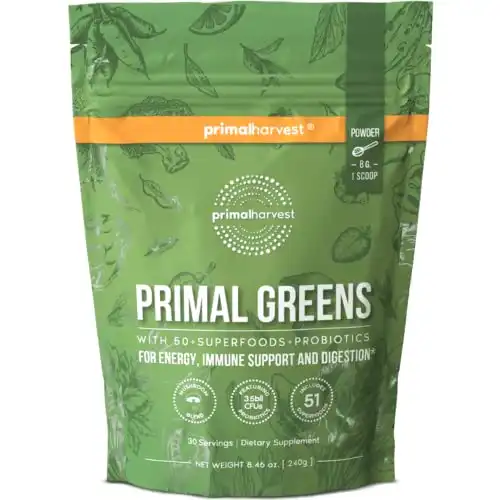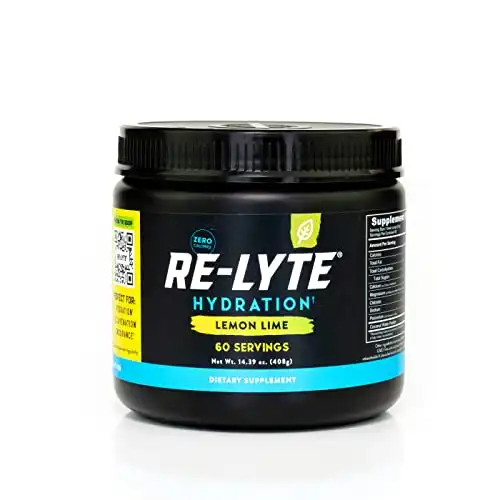In today’s health-conscious world, dietary supplements have become increasingly popular. With a vast array of options available, understanding what supplements are, their benefits, and how to use them can be overwhelming, especially for beginners. This comprehensive guide will break down everything you need to know about supplements, offering clear and detailed information to help you make informed decisions about incorporating them into your health regimen. Whether you’re looking to fill nutritional gaps, enhance physical performance, or support overall health, this post will provide you with the essential knowledge to navigate the world of supplements confidently.
Table of Contents
What Are Supplements?
Supplements are products designed to enhance your diet by providing additional nutrients. They come in various forms, including:
- Pills: Easy to take and dose accurately.
- Capsules: Often contain powder or gel, easy to swallow.
- Powders: Can be mixed with water or other liquids, often used for protein or meal replacements.
- Liquids: Absorbed more quickly by the body, useful for those who have trouble swallowing pills.
These products can contain a range of ingredients such as vitamins, minerals, herbs, amino acids, enzymes, and other beneficial substances. Most of the foods we eat are thoroughly processed and that process takes away the nutritional value of foods. Supplements are not meant to replace a balanced diet but to complement it by ensuring you get enough essential nutrients.

Why Take Supplements?
1. Fill Nutritional Gaps
Even with a balanced diet, you might not get all the nutrients your body needs. This can be due to various factors such as soil depletion, processing of foods, or simply not consuming enough of certain food groups. Supplements can help fill these gaps and ensure you’re getting essential vitamins and minerals.
2. Support Overall Health
Certain supplements can support general health and well-being. For example, vitamin C can boost your immune system, while omega-3 fatty acids promote heart health. Supplements like multivitamins provide a range of nutrients that support various bodily functions, ensuring overall well-being.
3. Enhance Physical Performance
Athletes and fitness enthusiasts often use supplements to improve performance and recovery. Protein powders, for instance, help in muscle building and repair, while creatine enhances strength and endurance. Branched-chain amino acids (BCAAs) can reduce muscle soreness, assist with muscle recovery, and improve exercise performance.
4. Address Specific Health Concerns
Supplements can be targeted to address specific health issues, such as joint pain (glucosamine), poor digestion (probiotics), or low energy levels (iron). For example, glucosamine and chondroitin are commonly used to support joint health, while probiotics can improve gut health and digestion.
5. Age-Related Nutritional Needs
As we age, our nutritional needs change. Older adults may require more of certain nutrients like calcium, vitamin D, and B12 to maintain bone health, cognitive function, and overall well-being. Supplements can help meet these changing needs.
6. Pregnancy and Lactation
During pregnancy and lactation, the body’s nutritional requirements increase to support the growing baby. Prenatal vitamins, folic acid, iron, and calcium are commonly recommended to ensure both mother and baby receive adequate nutrition.
7. Immune Support
Certain supplements can enhance the immune system’s function, helping to ward off infections and illnesses. For example, zinc, echinacea, and elderberry are known for their immune-boosting properties.
8. Cognitive Function and Mental Health
Supplements like omega-3 fatty acids, B vitamins, and ginkgo biloba are often used to support brain health, improve cognitive function, and enhance mood.
9. Skin, Hair, and Nail Health
Supplements such as biotin, collagen, and vitamins A, C, and E can improve the health and appearance of skin, hair, and nails, promoting a youthful and vibrant look.
10. Weight Management
Supplements can also support weight management efforts. For instance, fiber supplements can help with satiety, while green tea extract and caffeine can boost metabolism and fat burning.
Common Types of Supplements
1. Vitamins
Vitamins are organic compounds essential for various bodily functions. Each vitamin plays a unique role in maintaining health:
- Vitamin D: Supports bone health, immune function, and mood regulation. It’s crucial for calcium absorption and can be absorbed through sun exposure.
- Vitamin B12: Important for nerve function, red blood cell production, and DNA synthesis. It is particularly important for vegetarians and vegans who might lack it in their diet. Which is why I don’t suggest highly restrictive diets because they can cause your body to not perform optimally and contribute to malnutrition.
- Vitamin C: Boosts immune health, acts as an antioxidant, and aids in collagen production, which is important for skin health and wound healing.
- Vitamin A: Essential for vision, immune function, and skin health. It can be found in two forms: preformed vitamin A (retinol) and provitamin A (beta-carotene).
- Vitamin E: Acts as a powerful antioxidant, protecting cells from damage. It also supports immune function and skin health.
- Vitamin K: Important for blood clotting and bone health. It helps in the regulation of calcium and supports cardiovascular health.
- B Vitamins: Including B1 (thiamine), B2 (riboflavin), B3 (niacin), B5 (pantothenic acid), B6 (pyridoxine), B7 (biotin), B9 (folate), and B12 (cobalamin). These vitamins are crucial for energy production, brain function, and cell metabolism.

2. Minerals
Minerals are inorganic elements that our bodies need to function correctly. They play vital roles in maintaining various bodily functions:
- Calcium: Essential for strong bones and teeth, muscle function, nerve signaling, and heart health. It is particularly important for growing children and postmenopausal women.
- Iron: Vital for carrying oxygen in the blood. It prevents anemia and supports energy levels and cognitive function. Women of childbearing age and pregnant women often require additional iron.
- Magnesium: Supports muscle and nerve function, energy production, and bone health. It also helps regulate blood pressure and blood sugar levels.
- Zinc: Important for immune function, wound healing, and DNA synthesis. It also supports growth and development during pregnancy, childhood, and adolescence.
- Potassium: Helps regulate fluid balance, muscle contractions, and nerve signals. It is crucial for maintaining healthy blood pressure levels.
- Selenium: Acts as an antioxidant, supports thyroid function, and boosts the immune system. It also plays a role in reproductive health.
- Iodine: Essential for thyroid hormone production, which regulates metabolism, growth, and development. It is particularly important during pregnancy and infancy.
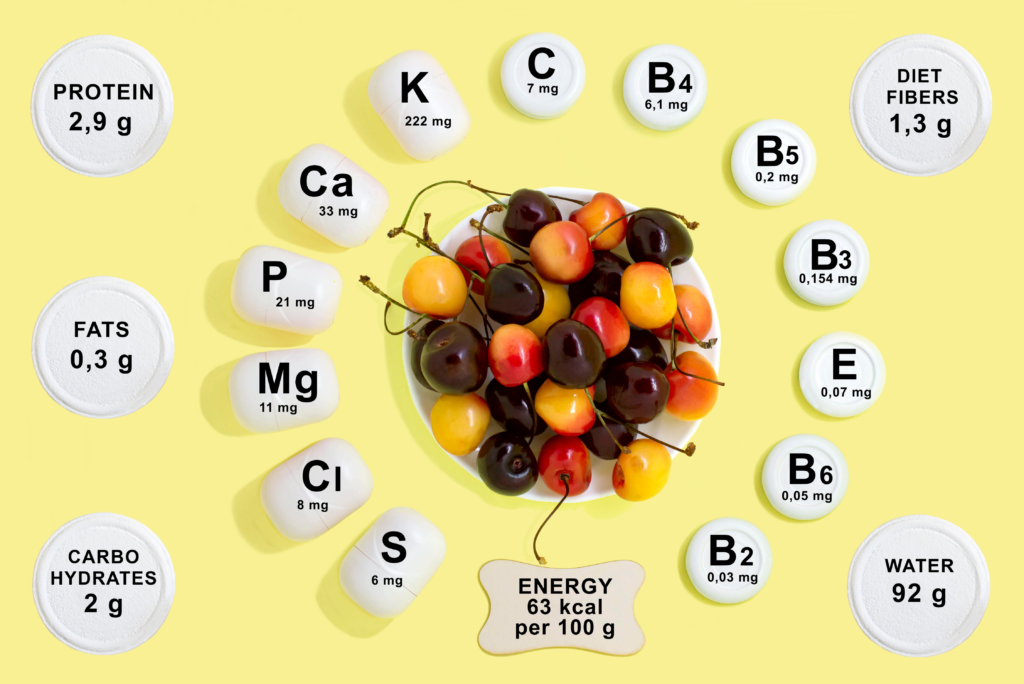
3. Herbal Supplements
These are made from plants and have been used for centuries for their medicinal properties. They offer a natural approach to health and wellness:
- Echinacea: Often used to prevent colds and reduce the duration of upper respiratory infections. It is believed to stimulate the immune system.
- Ginseng: Believed to boost energy, lower blood sugar levels, and enhance mental performance. It is also used to improve overall well-being and reduce stress.
- Turmeric: Known for its anti-inflammatory properties, thanks to the active compound curcumin. It is used to manage arthritis, digestive issues, and skin conditions.
- Garlic: Used for its potential to support heart health, reduce blood pressure, and enhance immune function. It has antimicrobial and antioxidant properties.
- Ginkgo Biloba: Commonly used to improve cognitive function, memory, and circulation. It may also help with anxiety and mood disorders.
- Milk Thistle: Known for its liver-protective properties. It is used to support liver health and detoxification processes.
- Saw Palmetto: Often used to support prostate health and alleviate urinary symptoms associated with benign prostatic hyperplasia (BPH).
- Aloe Vera: Known for its soothing and healing properties for skin and digestive health. It is used topically for burns and wounds and internally for digestive issues.

4. Amino Acids
Amino acids are the building blocks of proteins and play a crucial role in various bodily functions:
- Branched-Chain Amino Acids (BCAAs): Includes leucine, isoleucine, and valine. They are essential for muscle protein synthesis, reducing muscle soreness, and improving exercise performance.
- Glutamine: Important for immune function, gut health, and muscle recovery. It is often used by athletes and those recovering from illness or surgery.
- Arginine: Supports blood flow and cardiovascular health by producing nitric oxide. It also plays a role in wound healing and immune function.
- Lysine: Essential for protein synthesis, calcium absorption, and collagen formation. It also supports immune function and helps prevent cold sores.
- Tryptophan: A precursor to serotonin, it plays a role in mood regulation and sleep. It is often used to support mental health and sleep quality.

5. Probiotics
Probiotics are beneficial bacteria that support gut health. They can improve digestion, boost the immune system, and contribute to overall well-being:
- Lactobacillus: A common probiotic strain found in yogurt and other fermented foods. It supports digestive health and helps prevent infections.
- Bifidobacterium: Another common strain that supports gut health, boosts immunity, and helps manage symptoms of irritable bowel syndrome (IBS).
- Saccharomyces boulardii: A beneficial yeast that helps prevent and treat diarrhea, including traveler’s diarrhea and antibiotic-associated diarrhea.
- Streptococcus thermophilus: Supports lactose digestion and overall gut health. It is often used in combination with other probiotics.
- Probiotic Blends: Many supplements contain a blend of different strains to provide a broader range of benefits for gut health and immune support.

How to Choose the Right Supplements
1. Identify Your Needs
Determine what you need supplements for—whether it’s filling a nutritional gap, supporting a specific health goal, or enhancing physical performance. For example, if you’re an athlete, you might focus on protein and BCAAs, while someone looking to improve bone health might prioritize calcium and vitamin D.
2. Consult with a Healthcare Provider
Before starting any supplement, it’s wise to consult with a healthcare provider, especially if you have any pre-existing health conditions or are taking other medications. A healthcare professional can help you understand which supplements are appropriate for your needs and advise on safe dosages.
3. Research Quality
Look for supplements that have been tested by third-party organizations to ensure quality and safety. Check for certifications like USP (United States Pharmacopeia) or NSF International. These certifications indicate that the product has been independently tested for quality, purity, and potency. I say this with a caveat, that you should always know what is in your supplements and do your own research. Do not follow blindly what someone is telling you on a label, but research the ingredients and know what you are putting in your body.
4. Read Labels Carefully
Check the labels for active ingredients, recommended dosages, and any potential allergens. Make sure the supplement does not contain any unnecessary additives or fillers. Look for transparent labeling that lists all ingredients and their amounts. Frankly, many supplement companies are misleading and it is up to the consumer to ensure they are buying the right product to address the issue.
5. Start with a Lower Dose
It’s often best to start with a lower dose and gradually increase it as needed, monitoring your body’s response. This approach helps you assess how your body reacts to the supplement and reduces the risk of adverse effects.
6. Consider Your Diet and Lifestyle
Your diet and lifestyle play a significant role in determining which supplements you might need. For example, vegetarians and vegans might need B12 supplements, while individuals who don’t consume dairy might require calcium and vitamin D. You must take a holistic approach to eating and learn what foods are best, when to eat different foods, and how to determine if something is “healthy” or not. You can make healthy eating a lifestyle and not move from diet to diet depleting your body of critical nutrients so it can function properly.
7. Look for Whole Food-Based Supplements
Whole food-based supplements are derived from natural sources and often contain additional beneficial compounds found in whole foods. They may be more bioavailable and better recognized by the body compared to synthetic alternatives.
8. Check Expiration Dates
Supplements have expiration dates, and their potency can decrease over time. Always check the expiration date before purchasing or using a supplement to ensure you’re getting an effective product.
9. Consider the Formulation
Different formulations can affect how well your body absorbs and utilizes the nutrients. For example, some minerals are better absorbed in chelated forms and liposomal formulations can enhance the absorption of certain vitamins.
10. Monitor Your Progress
Keep track of how you feel and any changes in your health after starting a new supplement. If you experience any adverse effects, discontinue use and consult with a healthcare professional. It is a great habit to log all progress and roadblocks so that you can make improvements based on your specific findings. Everyone’s body is different and reacts differently to supplements, foods, and exercise programs so write everything down and personalize your program as much as possible.

Potential Risks and Considerations
1. Overdosing
Taking too much of certain supplements can be harmful. For example, high doses of vitamin A can cause liver damage, while too much iron can lead to toxicity. It’s essential to follow recommended dosages and avoid exceeding the upper intake levels for nutrients.
2. Interactions with Medications
Some supplements can interact with prescription medications, potentially causing adverse effects or reducing the effectiveness of the medication.
3. Allergic Reactions
Always check for potential allergens in supplements. Some people may be allergic to certain herbs or ingredients, such as shellfish in glucosamine supplements or soy in certain protein powders. It’s important to read labels carefully and be aware of any personal allergies.
4. Regulation and Quality
Supplements are not as strictly regulated as prescription medications, so the quality can vary. Always buy from reputable brands and sources to ensure you’re getting a high-quality product. Look for third-party testing and certifications to verify the supplement’s quality and potency.
5. Potential for Contamination
Some supplements, particularly those sourced from overseas or produced by less reputable manufacturers, may be contaminated with harmful substances such as heavy metals, pesticides, or unlisted pharmaceutical ingredients. Choose supplements from trusted brands that adhere to good manufacturing practices (GMP) and that present the cleanest product you are comfortable putting into your body..
6. Misleading Claims
Be wary of supplements that make exaggerated or unsupported claims about their benefits. Supplements are not a cure-all, and their effects can vary from person to person. It’s important to have realistic expectations and base your decisions on your own research or that of a trusted source.
7. Natural Doesn’t Always Mean Safe
Just because a supplement is labeled as “natural” doesn’t mean it’s safe or free from side effects. Some natural supplements can cause adverse reactions or interact with medications, so it’s essential to do your research and consult with a healthcare professional.
8. Cost Considerations
High-quality supplements can be expensive, and it’s important to consider the cost when adding them to your routine. Look for supplements that offer good value for money without compromising on quality. That said, this is not an area in life where I will want to “go cheap on”. Some supplements are more expensive than others, but the quality outweighs the price.
9. Individual Variability
People respond differently to supplements based on their genetics, health status, diet, and lifestyle. What works for one person may not work for another, so it’s important to find what suits your individual needs.
10. Long-Term Use
Some supplements are safe for long-term use, while others should only be taken for short periods. For example, certain herbal supplements might be intended for temporary use to address specific health concerns. Always follow guidelines for the duration of use and consult with a healthcare provider if you plan to use supplements long-term.

Supplement Suggestions
|
Primary Rating:
3.5
|
Primary Rating:
3.5
|
Primary Rating:
3.5
|
Primary Rating:
3.5
|
|
$94.99
|
$34.95
|
$47.99
|
$43.99
|
Conclusion
Supplements can be a valuable addition to your health regimen, but it’s important to approach them with knowledge and caution. By understanding what supplements are, their benefits, and how to choose and use them safely, you can make informed decisions that support your overall health and well-being.
Remember, supplements are meant to enhance your diet, not replace a healthy, balanced diet. Prioritize getting your nutrients from whole foods first, as they provide a complex matrix of nutrients that work together to promote health. Use supplements to fill any gaps or meet specific health needs, but always do so under the guidance of a healthcare professional.
Consider factors such as your individual health needs, dietary restrictions, and lifestyle when selecting supplements. Ensure the products you choose are high-quality, appropriately dosed, and free from harmful additives. Starting with a lower dose and monitoring your body’s response can help you avoid potential adverse effects.
It’s also crucial to stay informed and skeptical of exaggerated claims. Supplements can offer significant benefits, but they are not a cure-all. Approach them with realistic expectations and base your decisions on sound scientific evidence.
Finally, always consult with a healthcare provider before starting any new supplement, especially if you have existing health conditions or are taking other medications. Your healthcare provider can help you navigate the wide range of available supplements and choose those that are safe and effective for your specific needs.
With the right approach, supplements can play a supportive role in your overall health strategy, helping you achieve and maintain optimal wellness.

